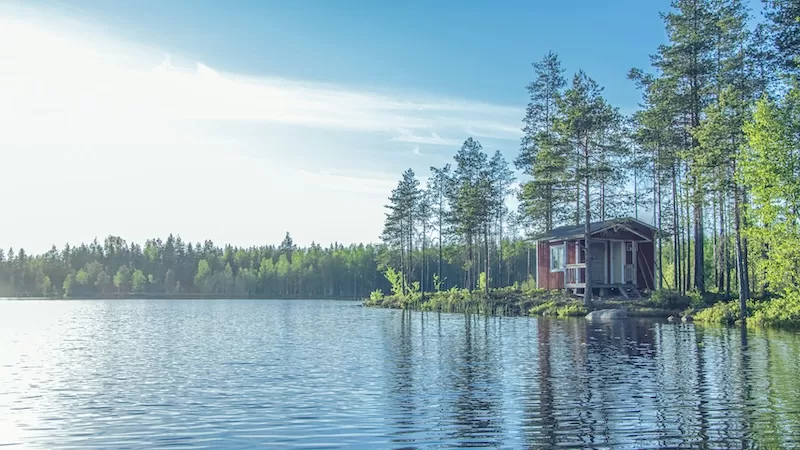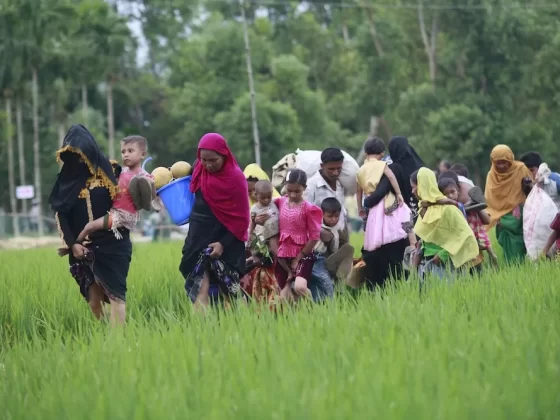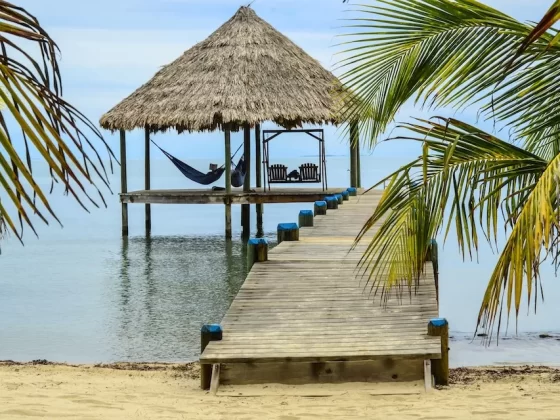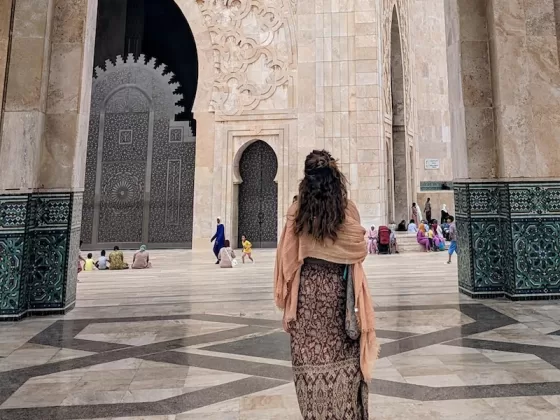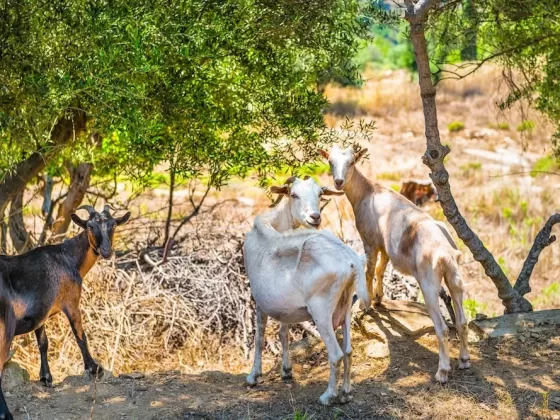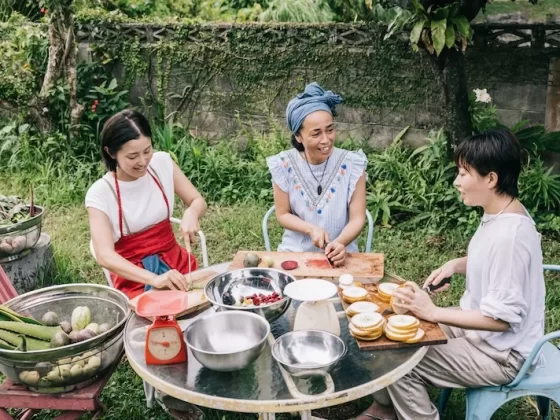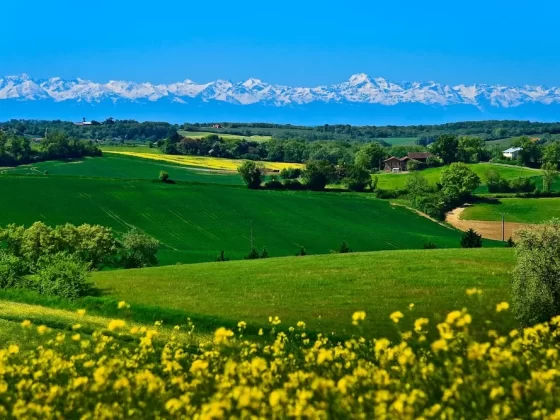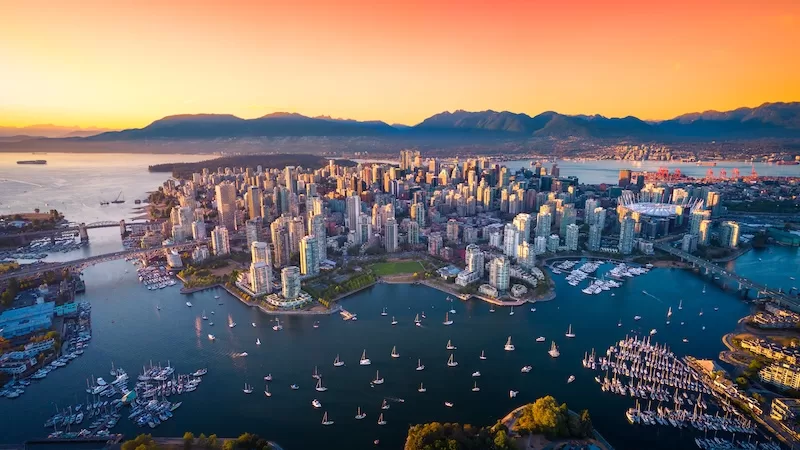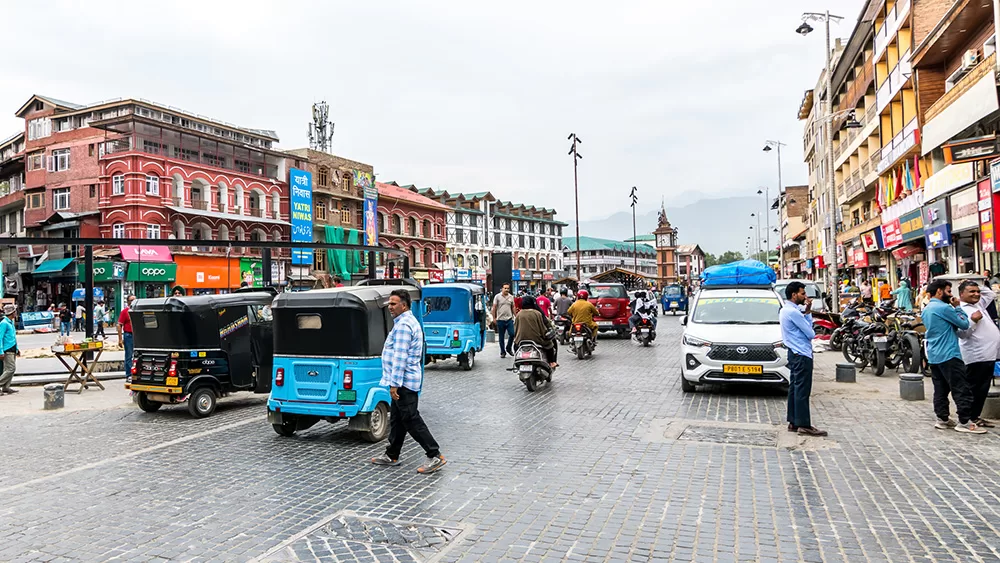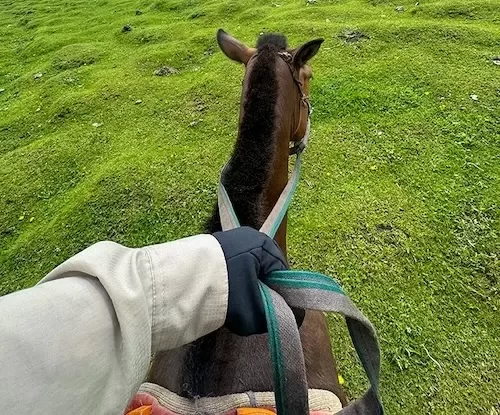The first time I came to Pakistan’s Ishkoman Valley, in 2019, I was riding a borrowed 150cc motorcycle in socks, sandals, and leggings riddled with holes. It was my first time biking in the mountains—badly, I should add. My cheap plastic helmet was my only protection from the rain and my reckless driving. Everything I owned—one ratty backpack and one overweight camera bag—was bungeed behind me, coated in a thick layer of mountain dust.
Back then I was just a gritty solo backpacker trying to get as far off the beaten track as possible. I didn’t know that five years later the road would eventually lead me back to this same valley, now a little wiser, and ready to pour everything I had into building Ishkoman’s very first travelers’ hostel.
Letting the Land Lead
At first glance, opening a hostel in northern Pakistan might sound like an odd life choice. But once you enter Ishkoman, the “why” becomes obvious. A turquoise river snakes through the valley floor, flanked by jagged peaks and sleepy villages nestled on the banks. Poplar trees rustle in the glacial breeze. In spring, apricot, almond, and cherry blossoms burst into bloom. Come autumn, farmers harvest their final crops beneath golden canopies, and branches bow beneath the weight of crisp pears. Walk through any village, and you’ll be greeted with smiles, waves, and an open invitation for tea.
Read more like this: The Top Expat Destinations 20 Years From Now
Once you’ve experienced Ishkoman for yourself, the only mystery left is “how?” How did a British-American solo female traveler with no ties to Pakistan end up building a hostel in one of its most remote mountain valleys?
The answer, as with most things in the mountains, came naturally. Land shifts when it needs to, rivers flow where they want, flowers bloom when the time is right. The decision to build a hostel? Cliché as it may sound, it happened organically. And maybe just a little impulsively.
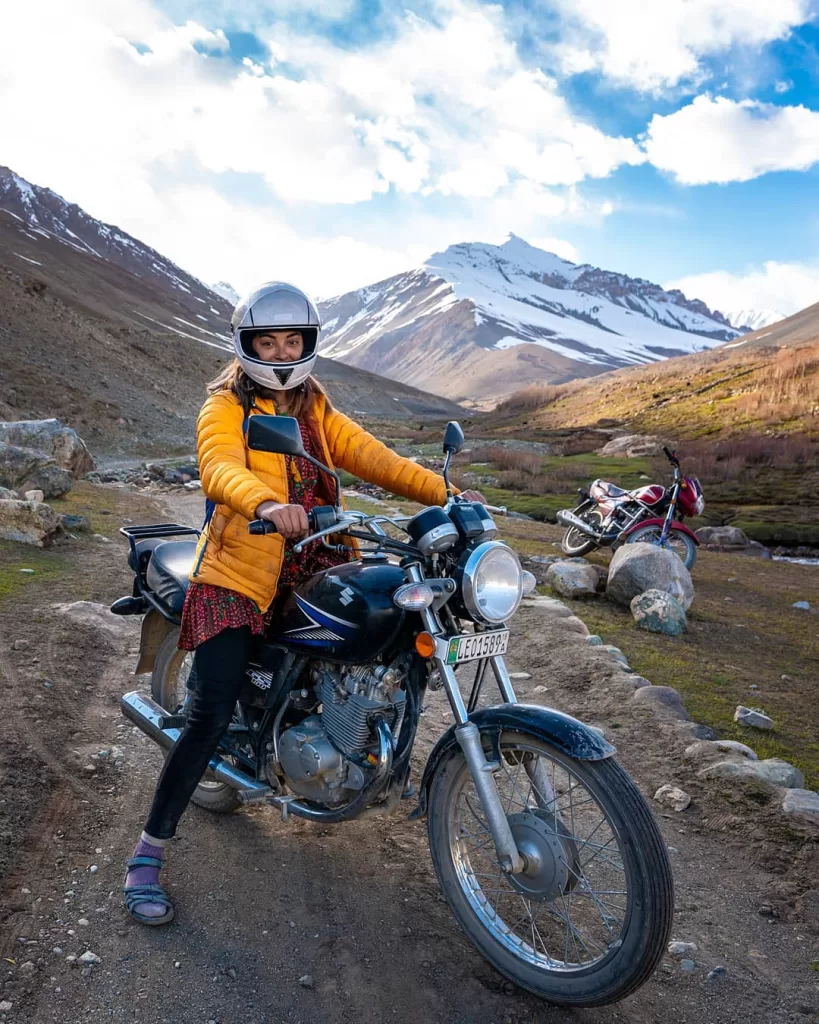
Addicted to Chaos
The very first seeds of the hostel’s existence were planted in May 2016, my first steps into Pakistan. I unintentionally came at the hottest time of the year, right as the fasting month of Ramadan started. Nothing like no food or water in 45°C+ to welcome you to a new country. Alas, there was little I could do. I was on a long overland backpacking trip—one that still has yet to end, really—and so I had to accept the inopportune timing.
The country is far more diverse—and safe—than international news might lead you to believe. It’s home to some of the world’s highest mountains, misty temperate rainforests, and sprawling deserts.
Despite soaring temperatures, scarce nutrition, and a stomach marred by sugarcane juice with dirty ice (how could I say no in 45°C?), I became captivated by Pakistan. Pakistan may be many things, but boring is never one of them. The country is far more diverse—and safe—than international news might lead you to believe. It’s home to some of the world’s highest mountains, misty temperate rainforests, and sprawling deserts. You can scale fortresses with nary a person in sight, or just as easily get lost in a crowd dancing to pounding drums.
Read more like this: Top 10 Things to Know if You’re Moving to Spain
For someone as impulsive as I am, it’s dangerously addictive. In Pakistan, planning feels almost pointless because nothing ever goes according to plan. A chance meeting in Lahore led to weeks exploring the old city’s alleys with a local artist. A stroll through a market in Hunza led to days of traipsing around with a stoner shaman. No matter my intentions, every outing became an adventure. Rather than resist, I let myself get swept up in Pakistan’s chaotic charms.

Backpacker to Businesswoman
That charm is not for everyone, though. I’ll be the first to admit that Pakistan is not the easiest country to visit. From regular power outages to scarce hotels to mandatory police escorts for foreigners, traveling often oscillates between utterly fascinating and immensely frustrating.
As years passed, visits repeated, and my connection with the country deepened, I wanted to do something about these frustrations. Through my travels and online, I met so many people interested in coming, but intimidated by Pakistan’s challenges. What could I do to ease the experience of travelers-to-be, while simultaneously giving back to the communities and country I’d come to love?
What could I do to ease the experience of travelers-to-be, while simultaneously giving back to the communities and country I’d come to love?
Read more like this: 3 Useful Tips for Travelers to Save Themselves from Scams
As one of the very few foreign women traveling solo around Pakistan at the time, there was a logical starting point—women’s tours. Female travelers wanted to come to Pakistan, but were intimidated by the patriarchal Islamic society and lack of infrastructure. Who better to guide them than me?
My women’s tours kicked off in 2019, and the demand was greater than expected. I started hosting mixed group tours. That same year, I met my (now) business partner, Sana. Often devious, extremely knowledgeable, and always up for an adventure, the Pakistani biker helped me grow from a wobbly novice to a proper off-road menace on a motorcycle. With his help, guidance, and laughs, in 2022, he and I added motorcycle tours to the repertoire. I had officially graduated from grubby backpacker to an international businesswoman.

Let’s Make a Hostel
As the tour business boomed, I found myself in Pakistan more often than not—at least 8 months out of every year. A big change for a woman who had been nomadic since 2016.
Between tours, I crashed on friends’ spare beds, backpacker style. But over time, I realized this wasn’t sustainable. Catering to guests’ needs 24/7 for weeks at a time is utterly exhausting, especially in developing countries. When you’ve been navigating groups through protests, landslides, and internet shutdowns for weeks, watching Netflix in your own bed is objectively remedial.
Read more like this: Five Travel Essentials for Women
At the end of 2023, a solution presented itself. Sana’s sister needed a new tenant for her rental house in Pakistan’s capital, Islamabad. The current renter had seven destructive dogs and hadn’t paid rent in months. Perhaps I would be interested in taking her place?
I wasn’t sure. Though I was technically in Pakistan most of the year, I was on the road most of the time. Did it really make sense to spend so much just to have a bed I wouldn’t actually be sleeping in?
Then, Sana and I had an idea—what if we converted the house into a hostel? I could have my own room, and the income would at least cover the rental costs when I wasn’t there. From a business perspective, it did make sense as there was only one (basic) hostel in Islamabad. We’d both traveled the world and worked in tourism for years, so we were sure we could do better.
Two very impulsive minds, one house for the taking, and the result was inevitable. On October 31, we signed a rental agreement for the house. After two frantic weeks of screeching wood saws, clanging metal, and an unhealthy amount of traditional decor shopping, we had our first guest on November 15. Pakistan chaos at its finest.

What Next?
By December, we were full, and guests were loving our creation. There was no place in the country so lovingly adorned with traditional Pakistani handicrafts, yet so well-designed to meet a budget traveler’s needs with hot showers and WiFi being woefully rare in Pakistan’s budget accommodations. Guests regularly came to us for a one-night stay, and ended up staying for months. Our little Islamabad hostel became a home for backpackers, bikers, cyclists, and more.
Naturally, our guests started asking us about other places in Pakistan to visit. Islamabad, though comfortable, is not the most thrilling destination. Perhaps we had another hostel they could visit in a more scenic part of the country?
Read more like this: The Power of Solo Travel
Our impulsive minds started whirring again. Many a time, Sana and I had talked about building a hotel in Pakistan’s northern mountains (most frequently when I was grumpy about struggling to fill tour slots). Why not expand our operations to include something beyond the capital’s streets?
As the 2024 tour season began, we put out feelers into communities in our favorite destinations, asking if anyone had land they wanted to lease. On one women’s tour, I took a bike before sunrise to examine a rocky plot of land by a rushing river. Sana discussed taking over a friend’s small mountain guesthouse in a border region near Afghanistan.
Despite many leads, nothing clicked. Determined to make things happen faster, we piled into Sana’s truck and headed to the mountains in June 2024. We had several destinations in mind, but there was one in particular that we felt might be right—Ishkoman.

Full Circle
Five years after my very first visit, I was again driving into Ishkoman. I’d visited many times since—I bring both women and motorcycle tour groups to Ishkoman—but this visit was different. This time, I was looking at Ishkoman through the lens of a place I’d stay not for days or weeks, but for years.
Together, we combed through the valley’s properties. A small grove of ancient apricot trees overlooking the river? Flood risk. A sliver of land filled with spiny sea buckthorn bushes? Too cramped. A half-built house down a narrow stone-walled lane? Pleasant, but no view.
Then we came to the house of a man named Raja Mansoor—a sprawling property overlooking the valley, in a quiet agricultural area not far from the main market. Vines of fragrant jasmine climbed the veranda of the 50-year-old stone home. A centuries-old mulberry tree scattered white fruit all over the lawn. As we sat on the lawn discussing options with the short but richly mustachioed Raja, jagged Hindu Kush and Karakoram peaks framed our view. Goats grazed in the orchard nearby, under the shade of apricot and walnut trees.
Hostel construction is in full swing, and it’s simultaneously thrilling and terrifying.
Read more like this: The Best Destinations for Solo Women Travelers
This was it, and nine months later, I’m sitting inside that very house. Outside, a growling tractor is bringing stones from a riverbed nearby. Carpenters are cutting wooden beams to fit on the roof of new rooms we’re building. Wind jostles almond blossoms by my window; the small flowers will soon give way to green leaves.
Hostel construction is in full swing, and it’s simultaneously thrilling and terrifying. Excessive construction costs and pending deadlines aren’t what scare me; material matters can be resolved with time, creativity, and hard work. What scares me is how much change we’re bringing to this valley I’ve become so attached to.

A Precarious Road Ahead
Though it’s far from the norm in patriarchal Pakistan, we’re making a point to employ local women. Women’s empowerment is easy on paper, but reality can be far different.
Ishkoman is not at all touristy—that was one of its main appeals. When our hostel is up and running, however, this destination will undoubtedly become part of the tourist circuit. Now, locals want more tourists to come, but how will they respond to the cultural mistakes inevitable with tourism’s arrival? What if too many insensitive tourists come? Will we bring Ishkoman to the tipping point when locals prefer tourists to go home?
Foot traffic is not the only change to come as local culture will be challenged, too. Though it’s far from the norm in patriarchal Pakistan, we’re making a point to employ local women. Women’s empowerment is easy on paper, but reality can be far different. It’s all fun until an angry husband or jealous neighbor fights us because “their” women are working in a public environment.
In small communities, such friction can easily spark a fire that ultimately drives us out of the community. Can we really bring about positive change while keeping things under control?

Letting the Mountains Decide
Nothing is guaranteed—but that’s okay. When I came to Ishkoman, I had no idea what lay in store. I was just a solo traveler looking for a wild ride in an epic destination. Years later, I have a better understanding of the area and its culture, but I still have no idea what lies in store for this hostel.
We will work carefully and mindfully, but no matter what we do, life in the mountains moves along its own path. Same as the day I first arrived in Ishkoman, with my dusty socks and sandals, all I can do is trust my instincts and see where the mountains take me.
———————–
Alex Reynolds is an American travel photographer, writer, and solo female backpacker. She’s scrambled up fortresses in Afghanistan, watched gods dance in South India, galloped horses across Kyrgyzstan’s steppe, and ridden a motorcycle from Pakistan to France. She can ramble all day about responsible travel, food, and/or goats.
Stay updated with the Latest Travel News and Trends. Subscribe now for in-depth analysis and real-time updates!
